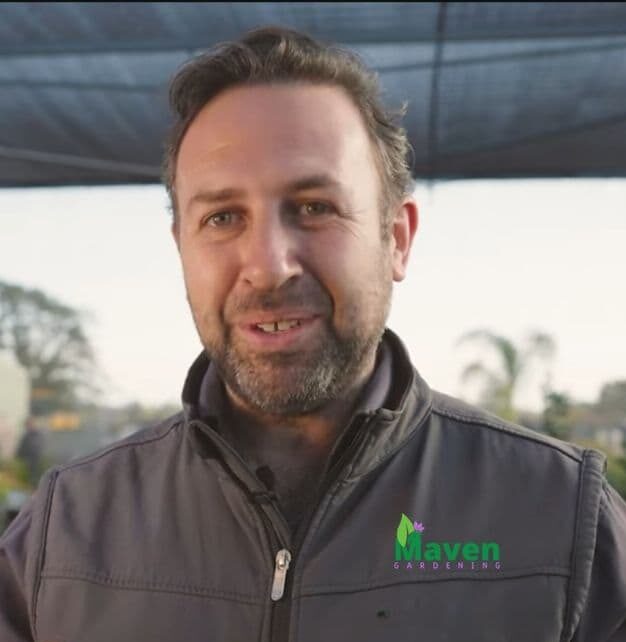PVC Hydroponic Systems: An Eco-Friendly Approach or Not?
Sustainable farming and gardening in cities are becoming more widespread, which has made hydroponic systems a popular choice for both home gardeners and commercial growers. As soilless farming has become more popular, PVC has emerged as a material often used in these methods. It makes me wonder if PVC is safe for hydroponics and doesn’t harm the environment.
What Are PVC Hydroponic Systems?
A PVC hydroponic system is a way to grow plants without dirt. Plants get nutrients from water. The name comes from the fact that most system parts are made of polyvinyl chloride (PVC).
How do PVC hydroponic systems work?
Nutrient-added water flows through PVC lines, enabling plant roots to absorb essential minerals and elements. This closed system ensures efficient nutrient absorption and minimizes water wastage, particularly valuable in regions with limited water resources.
The Popularity of PVC in Hydroponic Systems
The fact that PVC is widely used in hydroponics is not by chance. These systems are becoming more popular because they have many advantages, such as:
Cost-effectiveness: They cost less than other irrigation systems. The low price is especially attractive for people who want to build their own PVC hydroponic systems.
Ease of Assembly: It is easy for beginners to set up because supplies are easy to find and designs are simple.
Durability: PVC is strong, so you won’t have to buy new things as often.
However, people have raised concerns about the safety and environmental effectiveness of PVC in hydroponics.
.

Environmental Concerns Associated with PVC
There are some positive things about PVC, but there are also some environmental problems with it.
Chemical composition of PVC:
PVC is made from vinyl chloride, a synthetic chemical. The end product is mostly harmless, but the process of making it can use harmful chemicals like chlorine and different kinds of plasticizers.
Effects of PVC on the Environment
PVC production releases persistent organic pollutants known as dioxins. These are dangerous for the environment and food. In addition, the materials used to make PVC—mostly petroleum—have effects on the environment, such as destroying habitats and releasing greenhouse gases.
Is PVC Safe for Hydroponics?
It is essential to consider both the plants’ and people’s health when choosing a PVC pipe for hydroponics. Many people have asked, “Is PVC safe for hydroponics?” The answer depends on many things, like the type of PVC and how easily it releases harmful chemicals.
Several studies have examined PVC’s effects on plants. In most cases, PVC releases chemicals called phthalates when heated. In a DIY PVC hydroponic system, you typically need to increase the concentration of these substances.
PVC chemical safety seems good for hydroponic solutions. Most commercial hydroponic solutions have a pH level that doesn’t prompt the leaching of harmful substances from PVC.
Also, U.S. government agencies such as the Environmental Protection Agency (EPA) have clear guidelines and permits for the use of PVC in cultivation, although these rules are slightly different for hydroponics. As always, it is wise to choose PVC that has been tested and found to be safe for drinking water.
Eco-Friendly Alternatives to PVC
While PVC has its merits, people who care about the environment and sustainability often look for alternatives. For example, ABS plastic offers similar durability as PVC without phthalate leaching. Bamboo, a renewable resource, is another viable option, especially for smaller hydroponic setups. Bamboo channels offer a natural aesthetic and are biodegradable.
However, each alternative comes with its own set of challenges. ABS can be more costly, while bamboo, though eco-friendly, might offer less longevity and robustness than PVC. The key is to assess individual needs and make an informed decision.
The Lifespan and Recyclability of PVC Hydroponic Systems
If you properly care for them, most PVC hydroponic systems will last many years. As a result, PVC is a standard hydroponic material.
PVC is more difficult to recycle than PET plastic. It can take much work, and not all waste disposal companies take PVC. If you live in the U.S., you should talk to your local waste management company about recycling services.

Expert Opinions and Case Studies
Speaking with experts can help us learn more about the topic. A well-known agronomist from California, Dr. Rebecca Moore, says, “PVC hydroponic systems are durable and cost-effective, but users should be aware of possible environmental concerns.” A case study from a large-scale hydroponic farmer in Florida showed that their plant growth and yield mostly stayed the same after moving from PVC to ABS. But knowing they might lessen the damage to the world calmed them.
Another real-life example is a DIY PVC hydroponic system enthusiast from Texas who wrote about his journey online. He said that he started with PVC because it was cheap and easy to install, but later switched to bamboo tubes for a more eco-friendly setup.
Frequently Asked Questions (FAQ)
Why does PVC work so well in hydroponic systems?
Many growers, especially those who want to build their own PVC hydroponic systems, choose PVC because it is durable, doesn’t cost much, and is easy to assemble.
Is there any study that shows PVC is unsuitable for hydroponic systems?
Despite the lack of strong evidence that PVC is dangerous, studies have shown that chemicals from PVC may leach into hydroponic solutions. As with any subject, it’s imperative to study and make an informed choice.
How can I grow plants without PVC? What are some eco-friendly alternatives?
ABS, bamboo, and some bio-plastics are all eco-friendly products. The pros and cons of each material are their cost, how long they last, and how much damage they do to the earth.
When it’s no longer useful, can I return my PVC hydroponic system?
You can recycle PVC to some extent, but understanding the process and availability can be challenging. If your area permits recycling, check the rules.
In general, how long does a PVC hydroponic setup last?
If properly maintained, this type of hydroponic system can last many years. However, the material might break or change color over time, which might mean it needs to be replaced.
Final Thoughts
Hydroponics uses nutrient-rich water solutions to improve plant health and growth. When people think about the most suitable materials for these kinds of systems, PVC hydroponic systems always come to mind. It is because they are easy to get and inexpensive.
As we’ve seen, PVC is a popular choice for hydroponic systems because it is long-lasting, cheap, and easy to assemble. That makes it an excellent choice for many, especially those who want to build their own systems. But it’s difficult to ignore the environmental problems caused by PVC production, chemicals, and leaching risks in hydroponic settings.
It’s still not clear if PVC is completely safe for hydroponics, so the question “Is PVC safe for hydroponics?” is still valid. Since some studies worry about it and others say it’s fine, it’s up to each grower to make their own decision. We will have to weigh PVC’s ease of use and effectiveness against possible long-term health and environmental problems.
A Call to Act
What you say in this debate is critical! Have you played around with PVC hydroponic systems or tried a different material that worked well? In the section below, you can share your thoughts, questions, and stories. If you’re interested in hydroponics and want to learn more or start doing it yourself, explore our guides.
It will ensure your garden stays green and healthy. Remember that making smart choices will lead to a sustainable future. Have fun growing!

Meet Milan Cole, your urban gardening pro!
Milan Cole, chief content writer at Maven Gardening and an urban gardening expert, is passionate about helping city dwellers cultivate their green thumbs. Armed with extensive horticultural knowledge, Milan provides practical advice for overcoming urban gardens’ challenges, like limited space, water scarcity, and reduced sunlight.
His expertise extends beyond traditional methods, encompassing innovative approaches like hydroponic and aquaponic systems and sustainable gardening practices. Milan skillfully adapts these techniques to urban environments, considering factors like pollution and climate change.
In his clear and concise writing, Milan offers actionable solutions for anyone wanting to bring life to an urban space. He shares valuable insights into growing herbs in tight spaces, maximizing the potential of window boxes, and transforming even the most miniature balconies into thriving green oases.
Milan’s guidance is straightforward and practical, making it ideal for anyone looking to cultivate their own urban garden, regardless of prior experience.
Join Milan Cole on your journey to metropolitan Eden!
